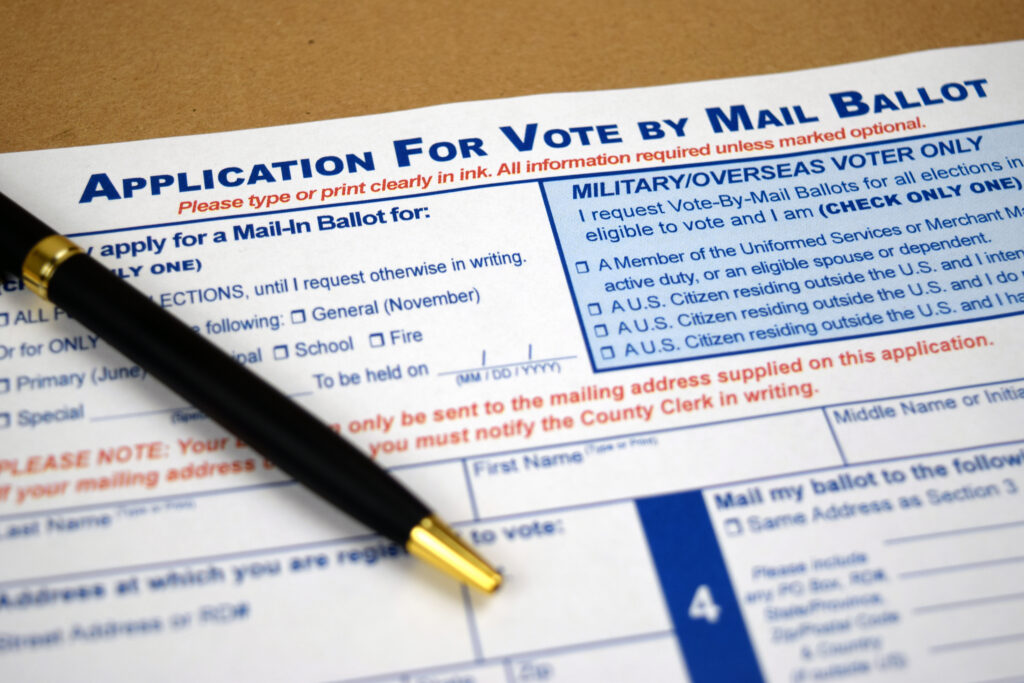‘Completely Inappropriate’: Top Elections Expert Reacts to Trump Administration Threatening Lawsuit Over State’s Mail-In Ballot Deadline

A leading election administration expert is calling out the Trump administration’s campaign to pressure Ohio to eliminate its grace period for mail in ballots.
“Congress has not made any rules with regard to how states can choose to allow for and accept mail ballots,” David Becker, the founder and executive director of the Center for Election Innovation & Research and a former trial attorney in DOJ’s voting section, said in a media briefing with reporters Thursday. “And for the DOJ, who has no authority to tell a state that in any way, to try to intimidate or pressure a state or its legislature to change its laws is completely inappropriate.”
Democracy Docket exclusively reported Wednesday that, according to remarks to lawmakers made by Ohio Secretary of State Frank LaRose (R), the Trump administration threatened the state with “costly litigation” unless it bans the counting of ballots that arrive after Election Day.
LaRose quoted a September 29 letter from Assistant Attorney General Harmeet Dillon, head of DOJ’s Civil Rights Division. Dhillon wrote, according to LaRose, that DOJ “implores Ohio to take immediate action (legislative or otherwise) to comply with federal law, and avoid costly litigation in federal court.”
LaRose said he shared DOJ’s message with lawmakers. Soon after, GOP-backed legislation, SB 293, was introduced to scrap the grace period — a key Republican goal in its ongoing war on mail voting.
Get updates straight to your inbox — for free
Join over 350,000 readers who rely on our daily and weekly newsletters for the latest in voting, elections and democracy.
“Senate Bill 293 is an atrocious piece of legislation that will disenfranchise tens of thousands of Ohioans while doing absolutely nothing to make our elections more secure,” state Sen. William DeMora (D), said in a statement to Democracy Docket. “In the last election alone, more than 10,000 ballots arrived after election day through no fault of the voters who cast them. If someone mails their ballot before election day, their vote should count. Period. Rejecting those ballots because the postal service was slow punishes voters for something completely outside their control.”
Ohio is one of 16 states and Washington, D.C. with mail-in ballot grace periods of varying lengths.
Despite Dhillon’s letter, federal law does not bar states from accepting late-arriving ballots. The Trump administration has tried to ban late-arriving mail-in ballots via the president’s anti-voting executive order. Much of the order, including that provision, has been blocked by courts from being implemented in 13 Democratic-led states that have sued.
The 5th Circuit Court of Appeals ruled last year in a case brought by the GOP, that the Constitution bars states from accepting late-arriving ballots. But no other appeals court has joined that ruling, and the Supreme Court is considering whether to hear an appeal.
A spokesperson for the DOJ declined to comment on the department’s communications with Ohio, or on the basis for its claim that federal law bars states from accepting late-arriving ballots.
Despite the 5th Circuit’s ruling, Becker emphasized that the federal government has no role in telling states how to run elections, calling DOJ’s pressure campaign “exceptionally odd.”
“Any election officials — Republican or Democrat — should be very skeptical about if the federal government comes in without any authorization from Congress, and tries to tell a state how to run its elections,” Becker added.